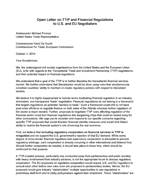Social Watch News
Published on Thu, 2014-10-16 13:24
The proposed Budgetary Law 2015 does not contemplate significant changes in the current structure of the public financing of higher education, says an analysis by the Centre of National Studies of Alternative Development, CENDA, and the Institute of Sciences Alejandro Lipschutz, ICAL. These think-tanks worry that resources designated to "subsidize demand" have increased significantly but that doesn't change "the commercialization of education and the role of profit-making in it". Michelle Bachelet was elected president on a platform that included free high level education and therefore the study finds "surprising" that the proposed budget "repeats and aggravates exactly that process of privatization that generated the current situation". |
|
Published on Fri, 2014-10-10 09:49
» |
Published on Thu, 2014-10-09 18:56
Nabeel Rajab, the President of the Bahrain Center for Human Rights (BCHR), Director of the Gulf Center for Human Rights (GCHR) and Deputy Secretary General of the International Federation for Human Rights (FIDH), was summoned on 1 October 2014 to attend an investigation at the Criminal Investigation Directorate, specifically the General Directorate of Anti-corruption and Economic and Electronic Security. The investigation session lasted about 45 minutes and focused on two tweets that the authorities claim have offended the Ministry of Interior. More than 100 organisations call for the immediate, unconditional release of detained human rights defender Nabeel Rajab, arrested on 1 October 2014 in Bahrain. |
Published on Thu, 2014-10-09 14:29
As the discussion about the national budget of Honduras are starting, women and feminist organizations assembled in different platforms and local networks, have started to demand participation in the debate. The situation of most Honduran women is precarious, they argue, having to face poverty and violence in their everyday life. Violence comes from their own family environment, from organized crime and from the repressive bodies of the State. |
Published on Thu, 2014-10-09 14:18
The Center for Women’s Global Leadership (CWGL) along with Political Economy Research Institute (PERI) had the opportunity to make astakeholder submission (UPR report) to the United Nations Human Rights Council as a part of the 2015 Universal Periodic Review of the human rights compliance of the United States. This provided an opportunity to reflect on the US experience of the 2008 global economic crisis. Following are insights from the submission and thoughts on the lessons for the Post 2015 Sustainable Development Goals and Financing for Development processes. |
Published on Tue, 2014-10-07 10:27
The Spanish policy of international development cooperation is showing symptoms of exhaustion, says Plataforma 2015, the Spanish chapter of Social Watch, The crisis in Spanish cooperation policy affects the most vulnerable people and evidences a collective failure in respecting and protecting human rights. These are problems of ethical and political nature and Spanish cooperation needs a reform consistent with the need for a global governance centered on guaranteeing the rights of all people of the world. |
Published on Fri, 2014-10-03 10:53
In a letter to U.S. and EU trade negotiators and finance ministers, 52 civil society groups on both sides of the Atlantic, Global Policy Forum amongst them, have come together to warn that the Transatlantic Trade and Investment Partnership (TTIP) currently under discussion could undermine new financial regulations and potentially create significant risks to the global financial system, as well as to investors and consumers. Despite the experience of the global financial crisis, leaked documents from the confidential TTIP negotiations indicate that current TTIP drafts replicate deregulatory provisions from pre-crisis trade arrangements, in some cases even adding new loopholes, such as the suggestion to introduce investor state dispute settlement provisions. |
|
Published on Fri, 2014-10-03 09:27
» |
| Source: . Published on Fri, 2014-10-03 00:00 |
Published on Thu, 2014-10-02 19:23
Roberto Bissio is the coordinator of Social Watch, an international network of citizens’ organisations reporting on how governments and international organisations implement their commitments on poverty eradication and gender equality. Here, he talks to Equal Times about this crucial moment in the development world. |
SUSCRIBE TO OUR NEWSLETTER










